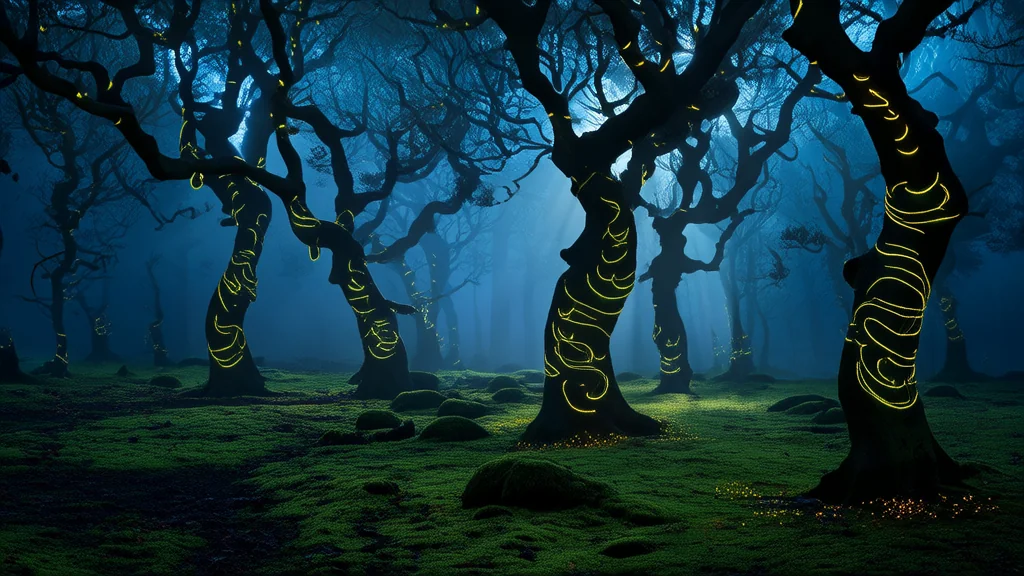🔮 Weird Tales & Urban Legends
Whispers in the Hollow: The Secret of Eldermere's Shifting Symbols

The village of Eldermere was nestled in a hollow where the wind never quite reached. It had no official name on any map, only whispered among travelers who dared to pass through. The people there spoke little, their voices hushed as if afraid the trees might listen. No one knew how long the village had stood, but the oldest stones in the square bore markings that no one could decipher—symbols that seemed to shift when viewed from different angles.
It was said that the first settlers arrived after a great fire consumed their homeland. They brought with them relics from the old world, things they claimed were gifts from the gods. But the villagers never spoke of those items, and no one had ever seen them. What they did speak of were the curses.
The first curse came in the form of a boy who vanished without a trace. He was last seen near the stone circle at the edge of the forest, a place known as the Hollowing. His mother searched for him for days, calling his name into the mist that always clung to the ground. When she finally gave up, she began to whisper secrets to the wind, her voice growing more and more desperate until the villagers took her away.
Then came the second curse. A woman who had once been a healer fell ill, not with sickness, but with a slow unraveling of her mind. She would wake in the middle of the night, muttering in a language no one recognized, and when she spoke, her eyes turned black as pitch. The villagers tried to help her, but she refused all medicine, claiming it was "the price." She died before the next full moon, and her body was buried beneath the same stone circle where the boy had disappeared.
Years passed, and the stories grew. Some said the curses were tied to the land itself, that the earth remembered the sins of those who came before. Others believed the symbols carved into the stones were not just decorations, but warnings—messages left by something ancient and unseen. No one dared to touch the stones, not even the children who played nearby.
One spring, a traveler named Elias arrived in Eldermere. He was a man of science, a scholar who had studied ancient texts and forgotten languages. He had heard the tales and dismissed them as superstition, but something about the village called to him. The air was thick with silence, the kind that pressed against the skin like a heavy cloak. He stayed in an inn run by an elderly couple who never spoke of the past, and he spent his days wandering the village, taking notes and sketching the strange carvings on the stones.
On the third night, he found himself drawn to the Hollowing. The moon was high, and the sky was clear, casting silver light over the clearing. The stones stood in a perfect circle, each one etched with the same symbols. As he stepped closer, the air grew colder, and the wind stopped entirely. He felt a pull, a deep and unexplainable longing to reach out and touch the center stone.
He did. The moment his fingers brushed the surface, a sound filled the air—not a noise, but a vibration that resonated in his bones. The symbols glowed faintly, and for a brief moment, he saw something: a figure standing in the center, its face obscured, its hands raised as if in supplication. Then it was gone, and the silence returned.
Elias ran back to the village, breathless, but no one believed him. The couple who ran the inn merely nodded, as if they had expected this. "You should leave," the woman said, her voice low. "The land does not forget."
But Elias could not leave. He returned to the Hollowing every night, trying to understand what he had seen. He found more symbols, ones that seemed to shift when he wasn't looking. He began to dream of the same figure, of whispers in a language he almost understood. And then, one night, he woke to find the door of his room locked from the inside, the symbols glowing faintly on the wood.
He tried to scream, but no sound came. The walls closed in, and the air grew heavy. He reached for the door, but his hand went through it as if it were made of smoke. In that moment, he realized the truth: the curses were not punishments. They were invitations.
And now, he was part of them.
发布于 en
🔗
相关站点
- AI Blog — AI 趋势与技术新闻